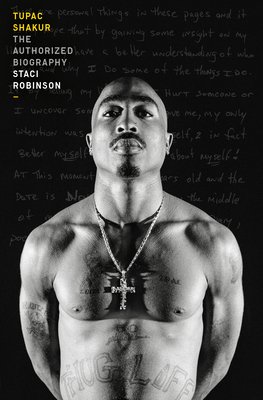
Book Review of Tupac Shakur: The Authorized Biography
A Personal Dive into Tupac Shakur: The Authorized Biography
As someone who rarely delves into celebrity memoirs, I found myself drawn to Tupac Shakur: The Authorized Biography by Staci Robinson. Perhaps it’s the lingering legacy of Tupac—a cultural icon whose influence reached far beyond the world of hip-hop. Or maybe it was the promise of a nuanced portrayal, crafted by someone who had known him personally. My curiosity turned into admiration as I turned each page of Robinson’s well-researched narrative.
Robinson first met Tupac when he was just a teenager, and her deep connection with him shines through in every chapter. Her humility is refreshing; she openly acknowledges her modest writing background but proves herself a master storyteller within this text. Afeni Shakur’s decision to entrust her son’s life story to Robinson is a testament to the integrity and commitment she exhibited during the writing process. If Robinson hadn’t earned an A+ before this, she undoubtedly has now.
Throughout the biography, the level of dedication to capturing Tupac’s spirit is palpable. Robinson does an exceptional job of weaving together interviews with his family, friends, mentors, and even acquaintances from his youth. This comprehensive approach honors the entirety of Tupac—a man who was both a dreamer and a realist, often caught in the crossfire of his own ambitions and the heavy weight of his reality. The intensity and focus that characterized him become apparent as Robinson deftly navigates the highs and lows of his journey from burgeoning talent to a household name.
One of the more surprising revelations was Tupac’s deep love for Victor Hugo’s Les Miserables. I never expected to uncover such a profound layer to someone often perceived as an embodiment of the "thug life." This biography highlights his surprising sensitivity and his acts of service toward his community, piecing together a complex man who, beyond his public persona, was deeply introspective. Robinson doesn’t excuse his reactionary tendencies but provides context that fosters understanding.
One of the standout aspects of Robinson’s writing is her ability to balance critical examination with empathy. Her portrayal unfolds a canvas that captures Tupac not just as a controversial figure subjected to media scrutiny but as a person with genuine flaws and aspirations. I found myself reflecting on quotes that resonated, like his acknowledgment of his own mistakes and his adamant pursuit of mutual respect in relationships.
Ultimately, Tupac Shakur: The Authorized Biography is more than a recounting of an artist’s life; it’s an invitation to perceive the man behind the music in a multi-dimensional light. The robust pacing and engaging anecdotes are framed beautifully by Robinson’s prose, making it a worthwhile companion. As I wrapped up my reading, I felt pulled into a world where I had gotten to know Tupac intimately, beyond the headlines and controversies that often clouded his genius.
I believe this book will resonate with anyone intrigued by the complexities of fame, art, and social justice. It serves as both a celebration of Tupac’s monumental impact on the music industry and a poignant reflection on his life’s challenges—a narrative filled with invaluable lessons. For anyone looking to understand the heartbeat of a generation through the lens of an artist, this biography is not just a read; it’s a must-have for your collection.
Discover more about Tupac Shakur: The Authorized Biography on GoodReads >>






